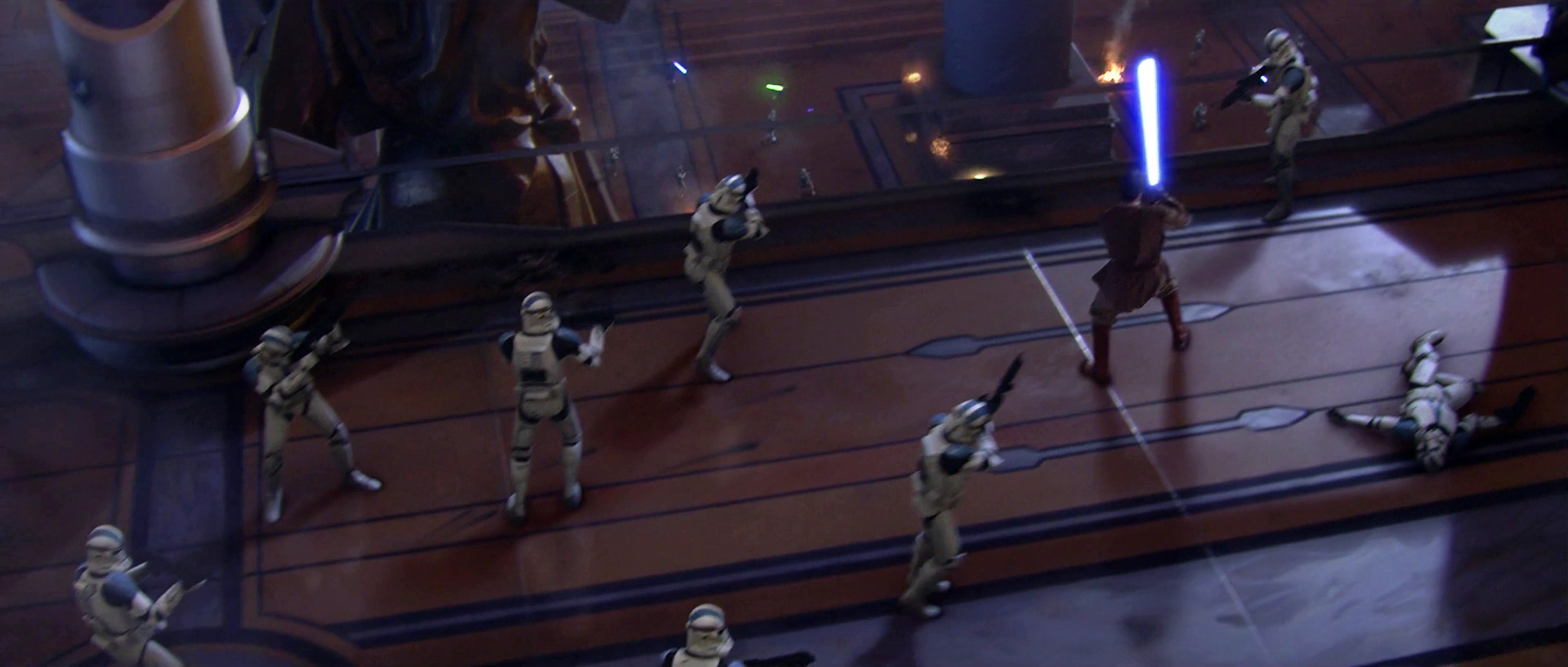Welcome! Reminder: This is not a full review (if you want that, that’s cool, and if you’d like I can recommend you something?) but rather a discussion on a few bits of the show. As always, spoilers from here on out.
You have to give it to Ezra Bridger – only he can simultaneously be a character that I rage about, sympathise with, and cry over (in the good way), and he manages all this in one episode. The episode I speak of is, of course, Legacy, the latest in the series and also the mid-season finale.

Escape
But before we discuss Ezra, there was one stand-out moment in an episode of stand-out moments that I’d like to highlight, and that is the escape from Garel.

With each episode, here and there and little by little, the quality increases*. Whether it be the action sequences, the dialogue, the design, or perhaps just simply correcting missteps from early on. Here, it’s pretty much all of the above. In reverse order: early on in the series, I was disappointed by the Spectre’s ability to escape from tight situations, because they all just felt too easy. And though there have been improvements along the way, where their dire situations actually felt dire, and that their escapes felt more like they were accomplished by the skin of their teeth, this is the first time I actually feared for the safety of the Ghost and its crew. And it wasn’t just a case of ‘if this fails, the Rebellion suffers a major setback’ – though that, too – but also a case of ‘everyone has brought their A-game, and the Rebels are still losing.’ It took an incredible Hail Mary (I don’t watch American football, sorry if that’s wrong) for them to escape.
*Not saying it gets nothing wrong, or there aren’t missteps, merely that it does, on the whole, improve.
As a refresher, here’s the context: the Inquisitors have managed to find out that the rebels are on Garel. Agent Kallus determines that the rebel fleet is scattered across various docking bays and ports across the city. Admiral Whatshisface sends in what appears to be a good-sized fleet to neutralise them (it’s also his misstep that costs them victory, but considering how the rebels do it, I can’t blame him. Vader might, though. I do hope he’s the forgiving type.) On the rebels’ side, the entire fleet shows a good effort in making a run for it, but their success is delivered a mighty blow when Commander Sato is captured by a tractor beam. Thanks to the knowledge of Sabine, and the flying skill of Hera, this problem is swiftly overcome (by ramming! With one gripe: no one yelled ‘ramming speed!’), and our rebels fight to live another day.
First, please forgive me for writing what you no-doubt already know, above, but it bears demonstrating that each and every character plays to their respective strengths, and work seamlessly together. They all have their key role to play in the dance-with-no-dragons-but-plenty-of-pretty-ships, and they don’t overstep their own boundaries by suddenly doing something that another can do better, or doing something that they haven’t already been shown to be adept at. It was some great characterisation and writing, and the choreography of the battle really came together. Absolutely superb.
Return of the Teenager

… which is why I’m honestly reticent to note out that I just didn’t like Ezra at all. Okay, this is hardly news. Anyone who pays the slightest attention knows that I don’t like Ezra. But the writing was just so good that I’m sorely tempted to overlook this bit. Look, it’s not like there haven’t been good Ezra bits. Admittedly, I may not be able to remember them, but I’m sure there were some.
It’s tempting to say that, since he’s in emotional turmoil over the possibility of reuniting with his parents, it’s understandable that he would revert to his selfish, reckless, teenage self. True, in real life, this can and does happen. And in TV world, this is often the case. But it’s just such a cliche* that I yearn for its demise in storytelling. We can have a teenager (either as a main character or not) that isn’t annoying, and we can have a character – at any age – that, upon facing a personal dilemma, doesn’t immediately lose all sense and all training (i.e. for Ezra, the past season and a half) and go off to wage their personal war. The show itself recognised this, quite rightly, and tried to demonstrate to Ezra that this needn’t be the case. I loved that it repeatedly pointed out that Ezra wasn’t alone, that he had a new family, and that he could do this as part of a team. Indeed, Ezra himself does recognise this, and yet, sadly, on more than one occasion he forgets this and goes charging off to fight the two Inkies.
*Which, in fairness, isn’t in and of itself a bad thing. Just that when it’s done reflexively and with little thought, it can be irksome.
This poor characterisation both goes against his personal journey of the series, and also sticks out as a sore thumb in an otherwise solid episode.
However, Ezra wasn’t all bad because, as I said earlier, only he could suffer some poor writing, and still have one of the most emotionally powerful stories in the entire series.
Guilt

The main drive of the episode was that Ezra experienced a Force vision and … some other stuff happened. Okay let’s sort this out: he saw his parents, which led to him hunting down some other escaped prisoner, who turned out to be an ex-governer of Lothal (the person in the above picture) who had aided his parents in their anti-Imperial activities, pre-prison. Then, when their parents heard Ezra’s broadcast from last season (because apparently they’re allowed radios in Imperial jail) they orchestrated an escape, and though the ex-governor managed to succeed, Ezra’s parents died in the attempt. Which, all things being equal, is a bit of a bummer.
I personally wasn’t a fan of the Force vision because, although it was very nice of the Force to do something to give Ezra closure, it didn’t really sit all that well in the framing of the episode (a better solution would have been for Hera and Kanan to complete their private investigation and inform Ezra), but the vision itself wasn’t explained terribly well (and the story was a tad convoluted, but I didn’t mind so much), and was then passed over with a hand-wave bigger than one given by a Jedi on a winning streak in a casino.

Earlier I mentioned cliches, and how I didn’t particularly like that particular instance. Now I’d like to talk about another possible cliched moment, but one that I wouldn’t mind: First, the blame for the death of Ezra’s parents rests solely on the Empire’s shoulders. Not on their own shoulders for attempting to break out, nor even on Ezra’s, for providing the spark that instigates their escape attempt. But what if Ezra believed that to be the case? Because, if you’ve just been told that your own act of rebellion is what indirectly led to (not caused, simply led to) their deaths, you’d be entirely forgiven for thinking that the blame is yours.
This is wrong, of course, but entirely understandable and a very human thought to have. There is precedence in the real world, where victims of abuse often harbour these thoughts – and again I must stress that the fault is never theirs. And in TV Land, it is a well-worn cliche that characters who suffer a loss will blame themselves, yet I would be happy to see it here, if only so that the entire matter isn’t neatly swept under a rug for the rest of the series. But more than that, I would love to see how, with a nuanced handling, that plays into his coming to terms with the loss of his old family, and finally growing into and accepting his new one. I would love to see it influence his decisions, going forward, where he questions himself over helping someone, because it might lead to someone else’s death. Because even though he understands intellectually that it wasn’t his fault, there would still be that tiny voice in the back of his head, needling away at him that those deaths are on him, and it’ll be there – forever.
Author: Michael Dare
Michael Dare is a writer, lives in the UK, and has been slowly coming to terms with the realization that he is not Sherlock, but Watson. He loves Star Wars, dislikes blue milk. Enjoys jumping sharks. Survives on the tears of sexist men, and cheeseburgers.
